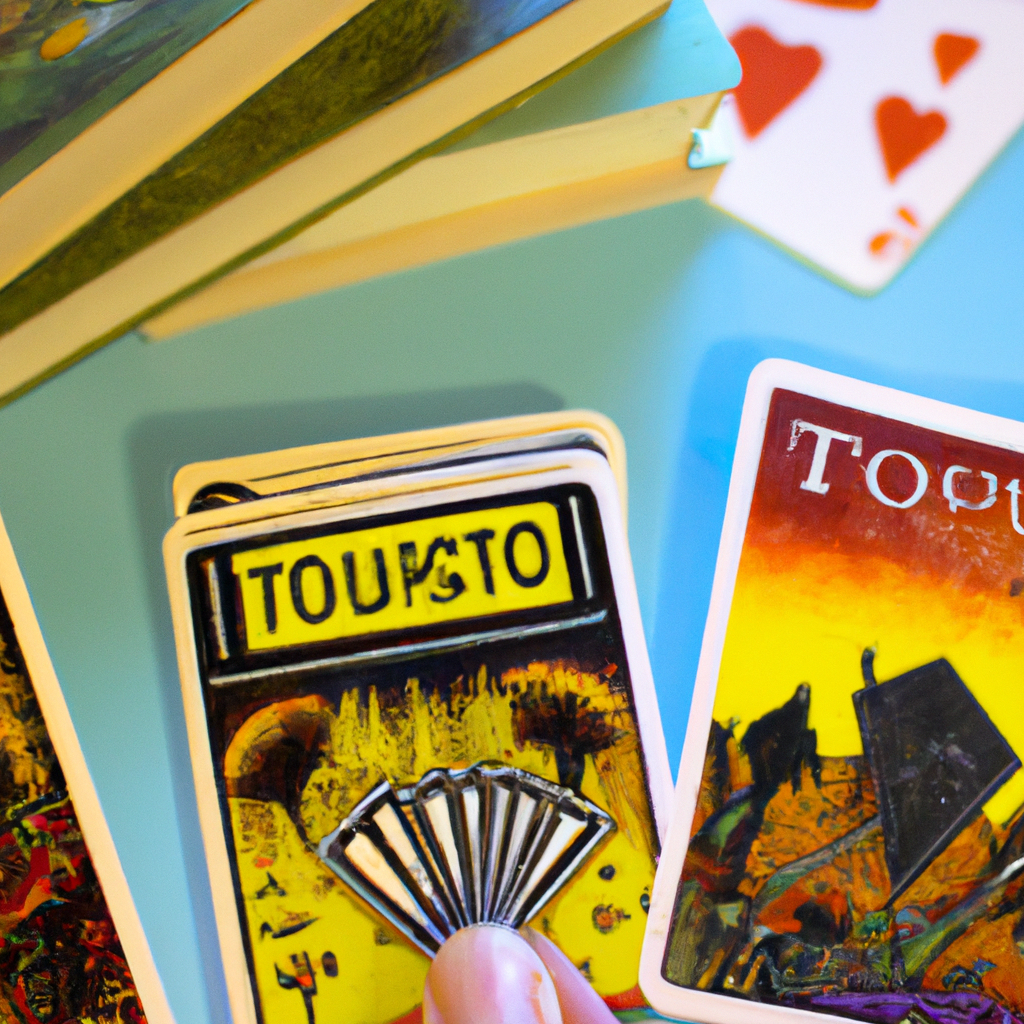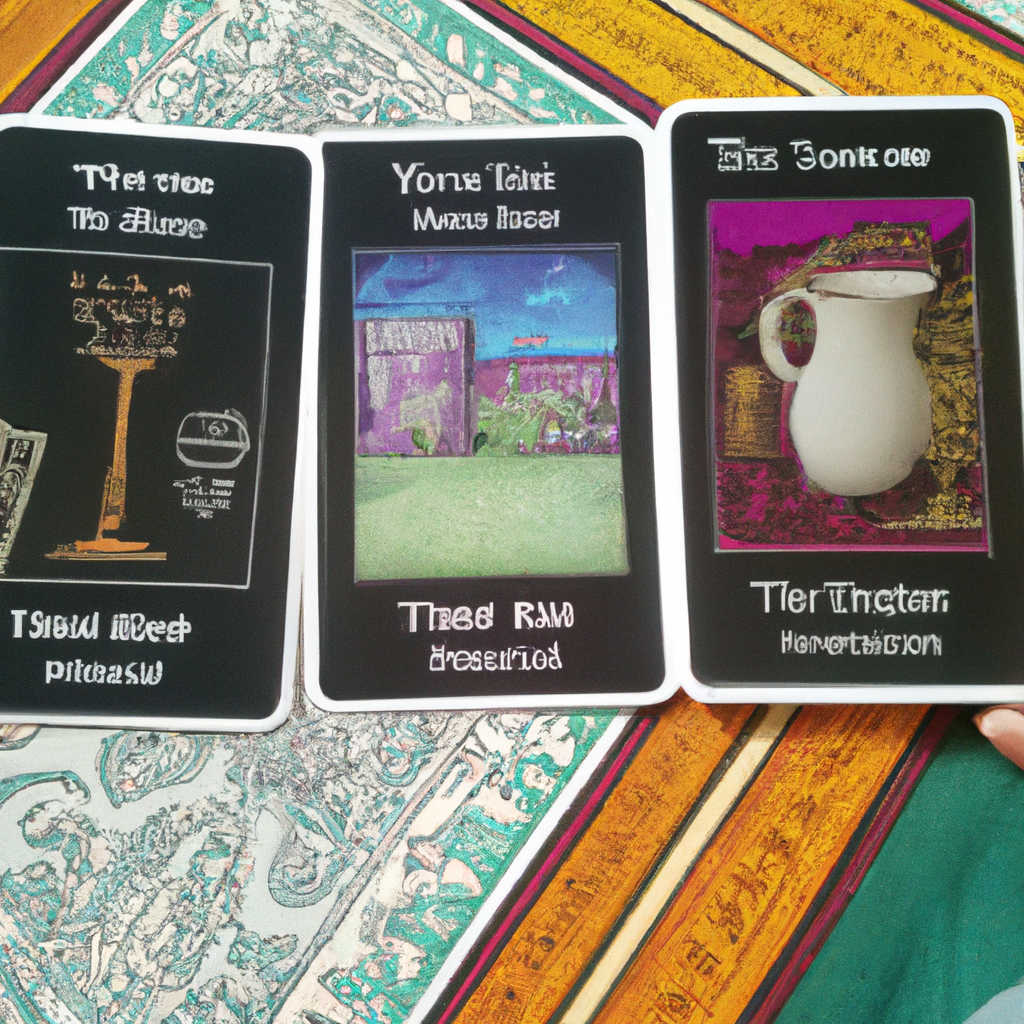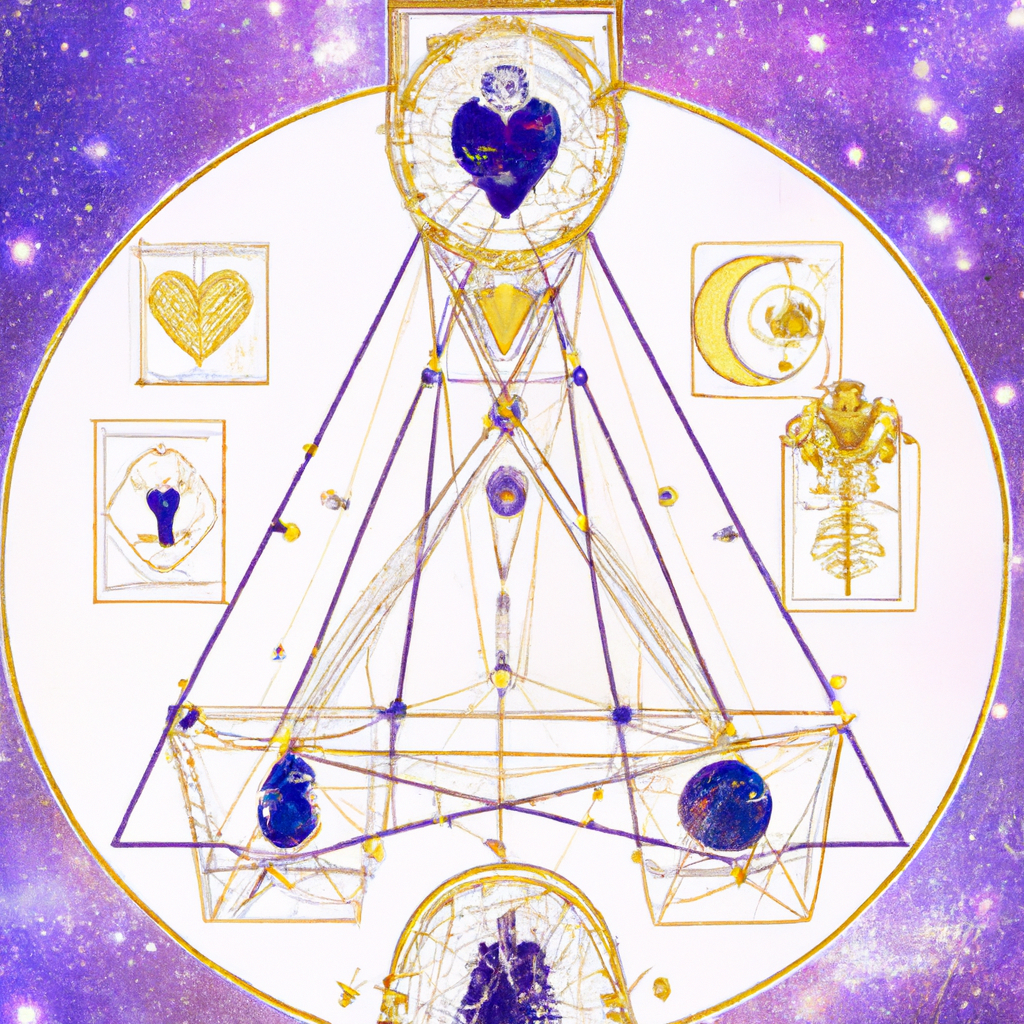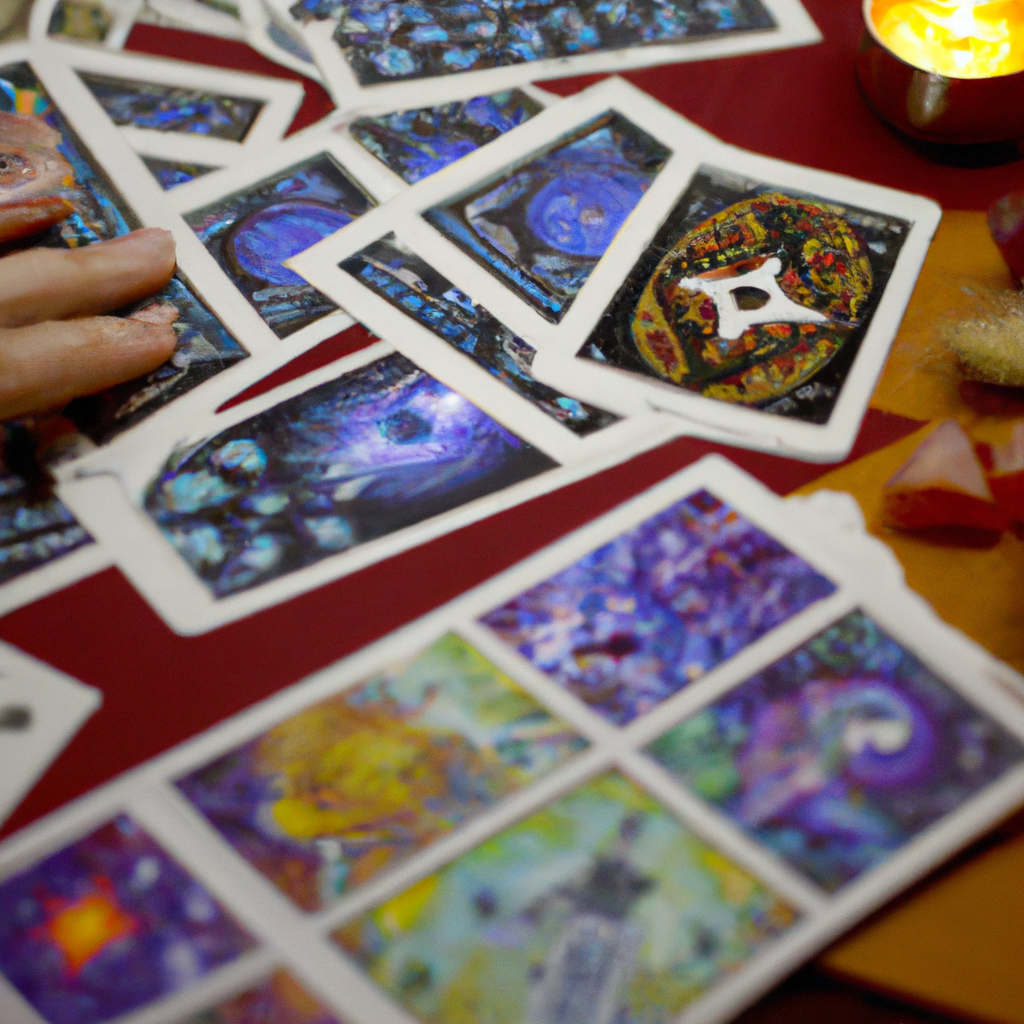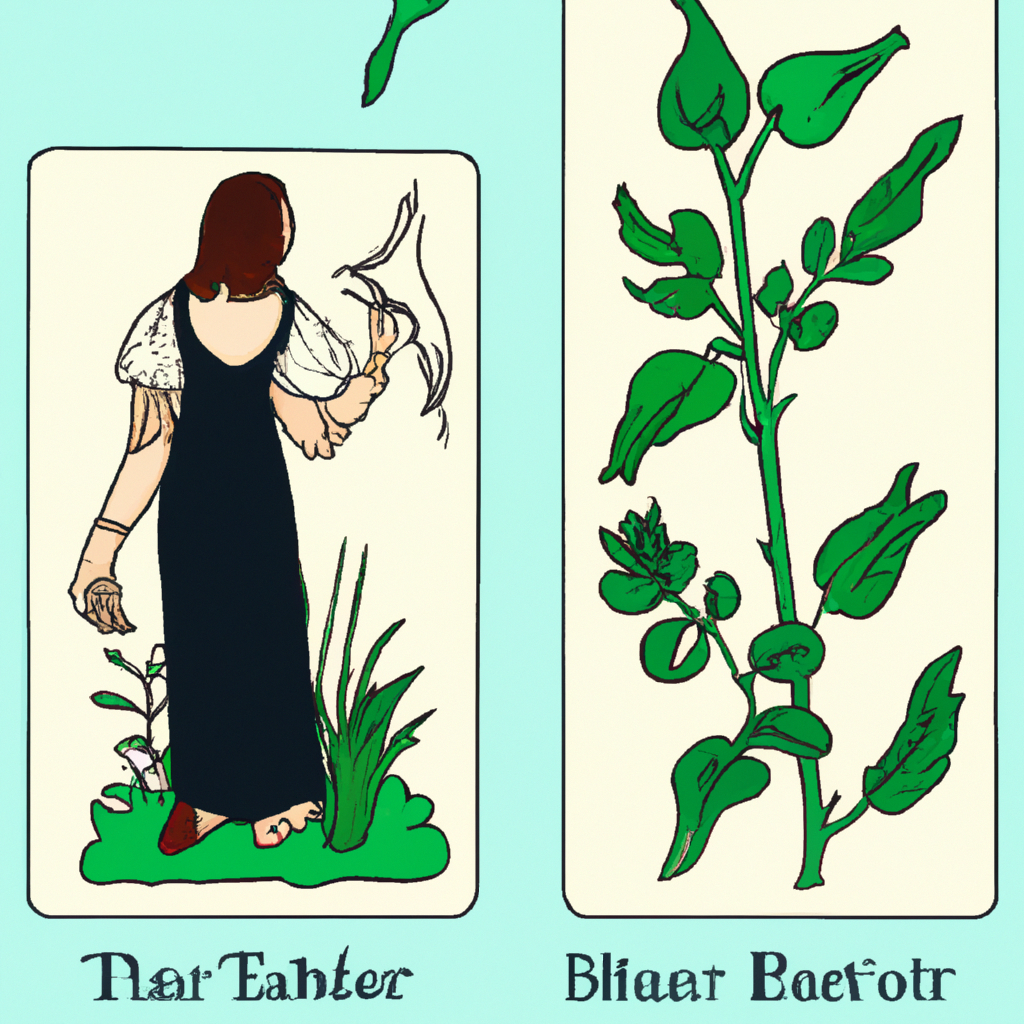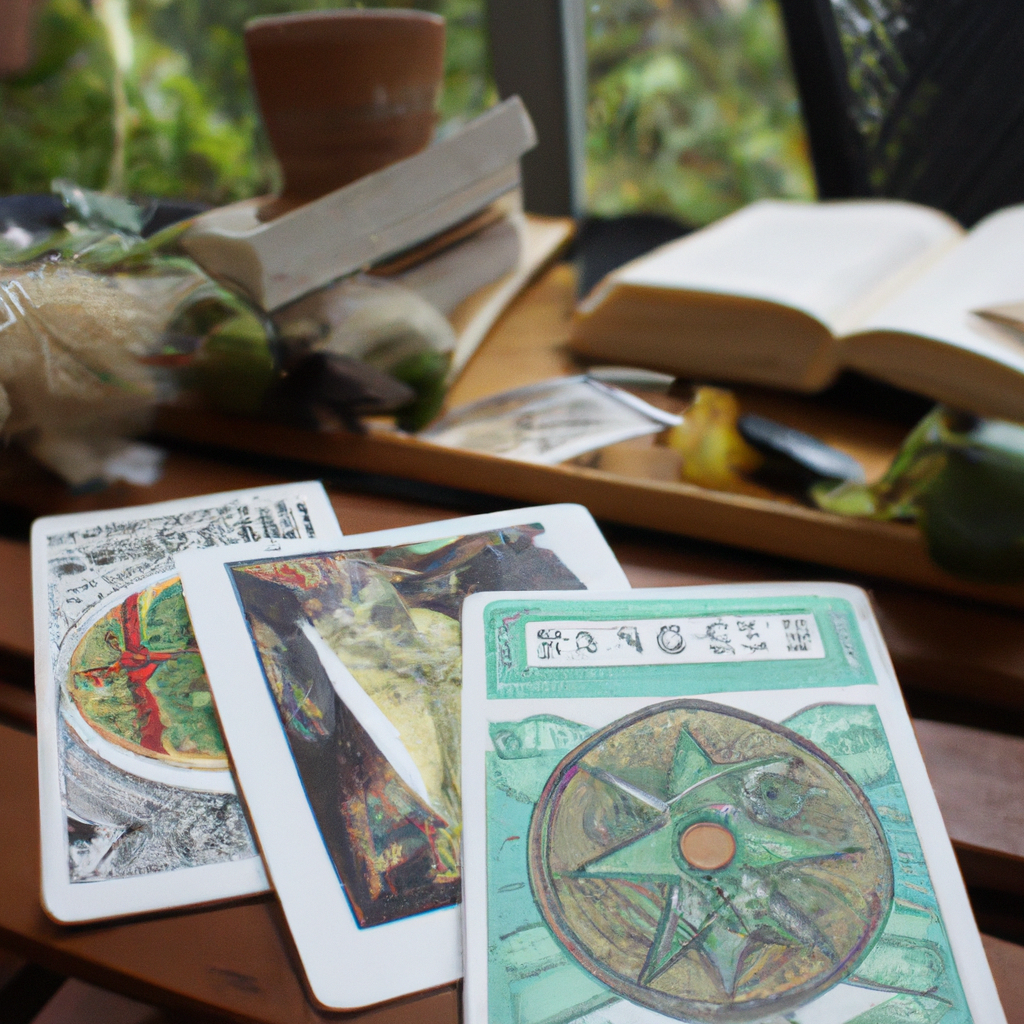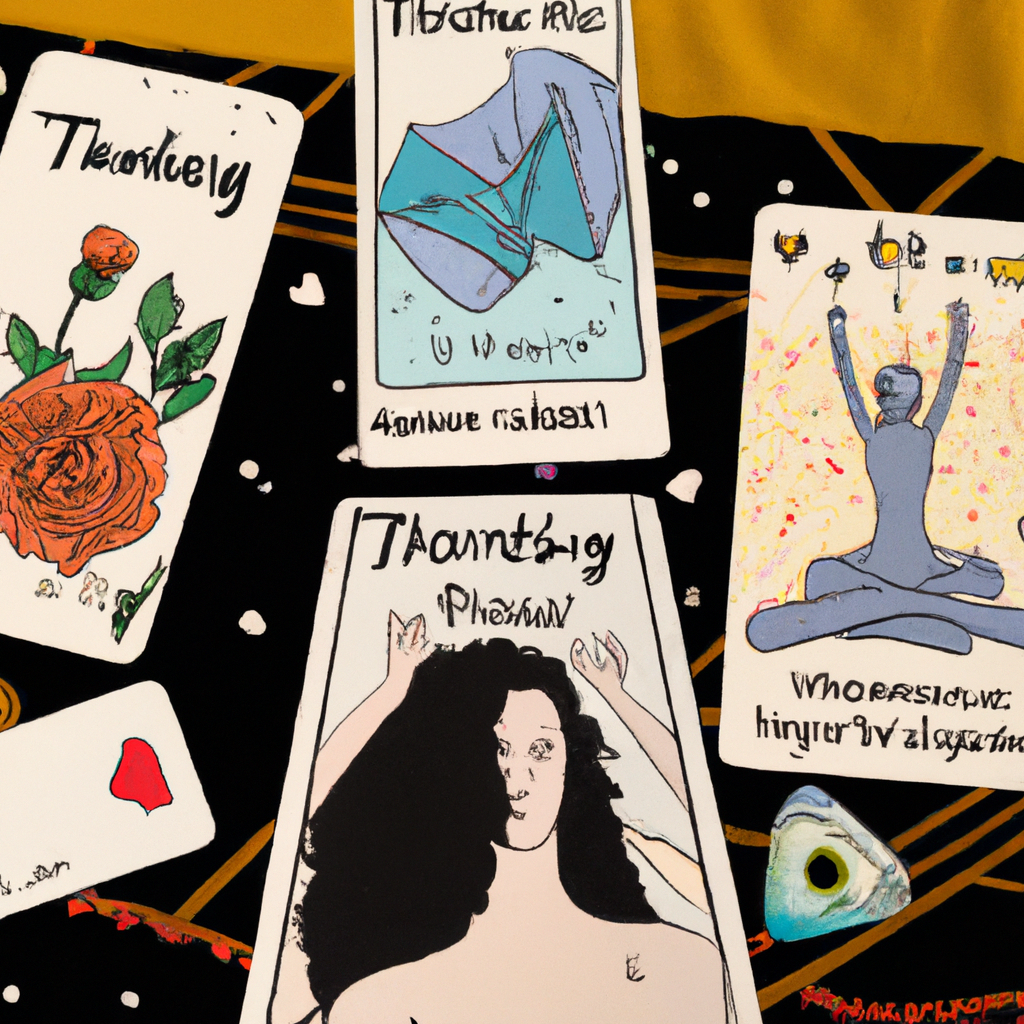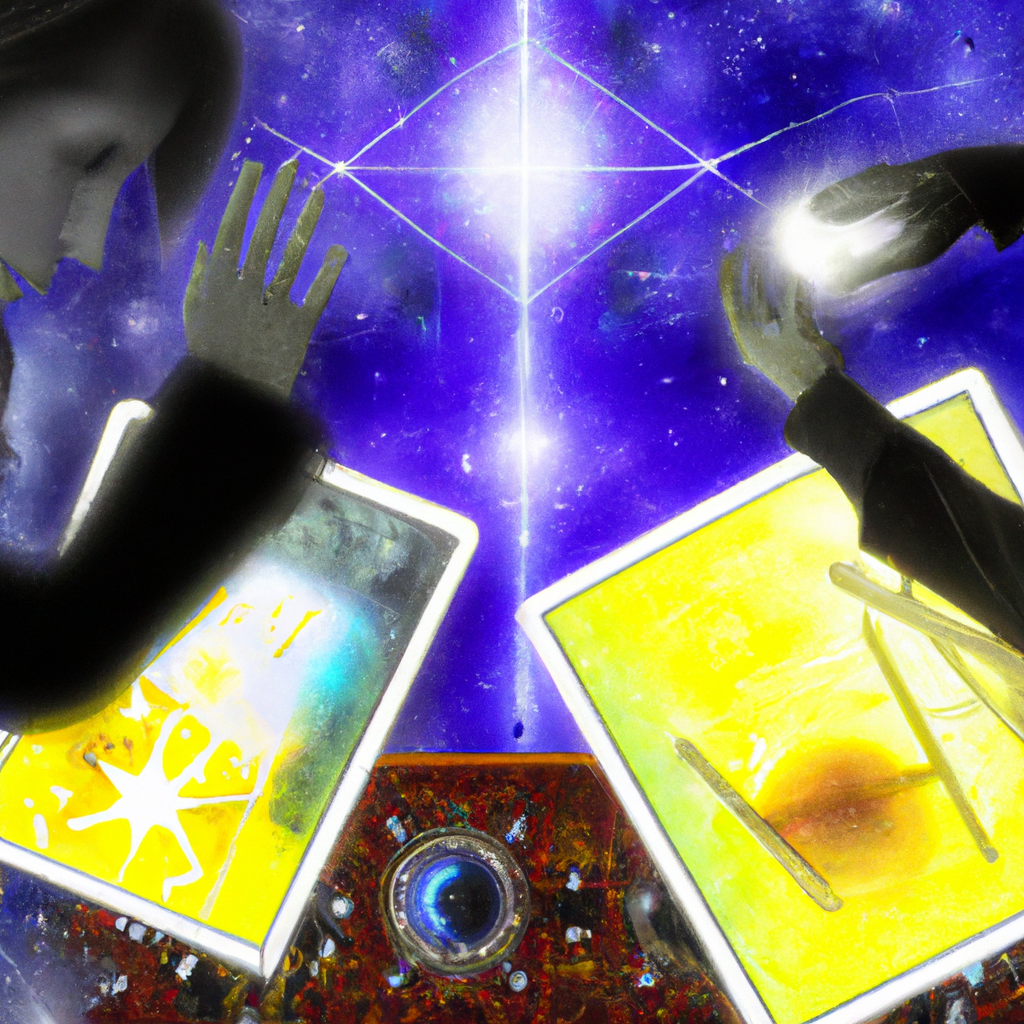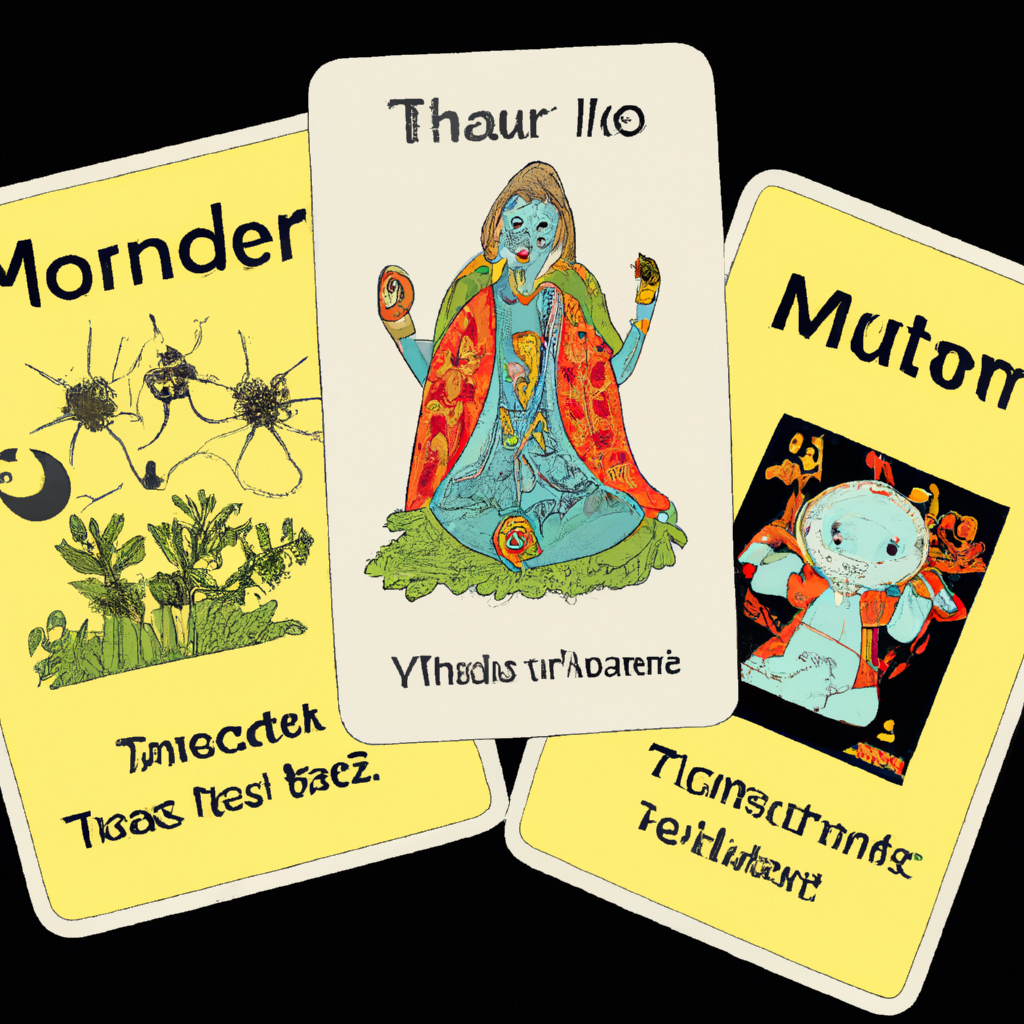Shopping Cart.
No products in the cart.
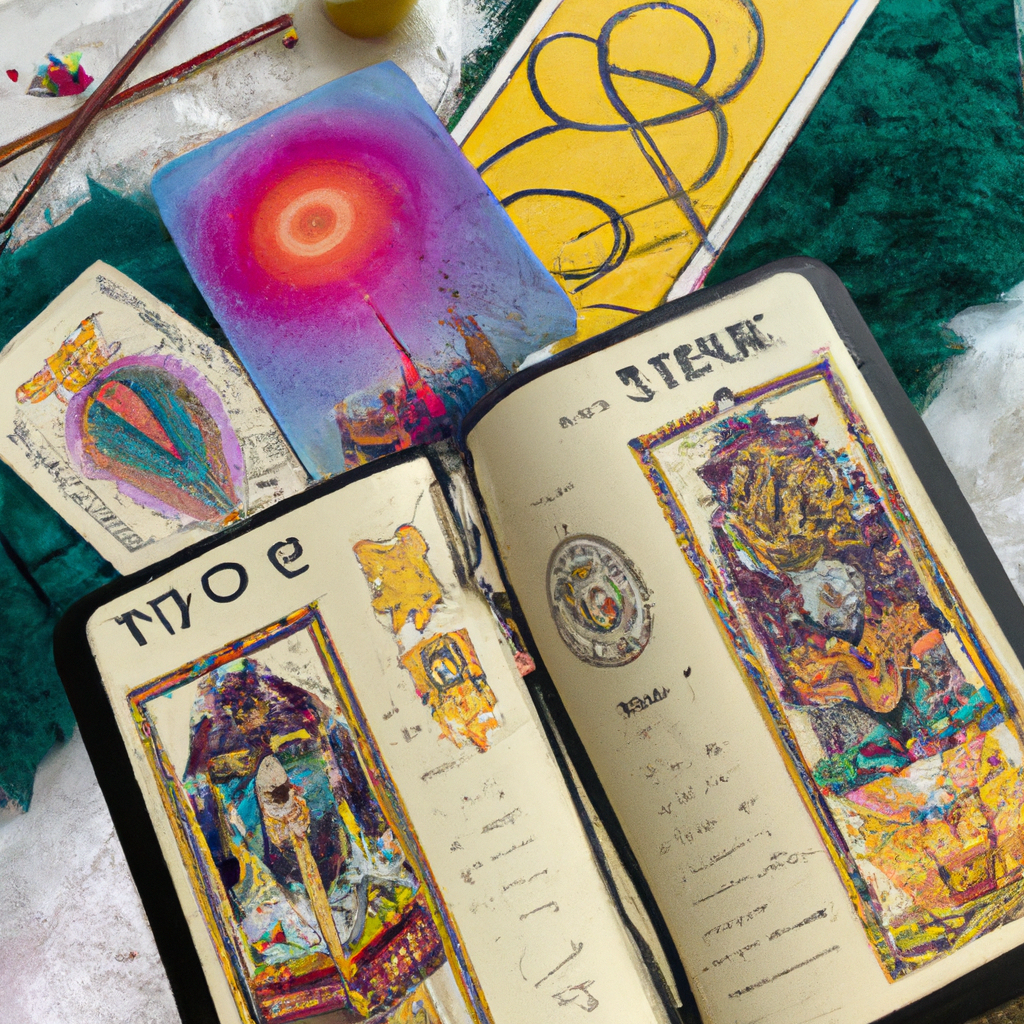
Tarot journaling is a fascinating journey, a mystical exploration of the self, and a unique way to document your personal growth. It’s like having a conversation with your subconscious, where the tarot cards serve as the language. The art of tarot journaling is not just about predicting the future, but it’s about understanding the present and learning from the past. It’s a delightful blend of introspection, creativity, and spirituality that can bring a sense of peace and clarity to your life.
Imagine this: you’re sitting at a quiet corner of your home, a deck of tarot cards spread out before you. You draw a card, and it’s The Fool. You ponder over its symbolism, its connection to your current situation, and the insights it offers. You jot down your thoughts, feelings, and interpretations in your journal. This is tarot journaling in its simplest form. But, oh, it’s so much more than that!
Tarot journaling is like embarking on a personal adventure. Each card you draw is a new chapter, a new story waiting to unfold. The High Priestess might represent a time of introspection and intuition, while The Tower could signify a period of upheaval and change. As you document these experiences, you’re not just recording events; you’re capturing your emotional and spiritual journey. You’re creating a narrative of your life, told through the mystical language of tarot.
The beauty of tarot journaling lies in its flexibility. There are no hard and fast rules. You can draw a card daily, weekly, or whenever you feel the need for guidance. You can write a few lines or pour out pages. You can doodle, sketch, or paste pictures. You can use your journal as a space for self-reflection, a tool for personal growth, or a record of your spiritual journey. The choice is entirely yours.
One of the most rewarding aspects of tarot journaling is the opportunity for self-discovery. As you delve deeper into the symbolism of the cards and reflect on their relevance to your life, you’ll uncover layers of your personality, your fears, your dreams, and your potential. You’ll start to see patterns, connections, and insights that might have otherwise remained hidden. It’s like having a mirror that reflects not just your physical self, but your innermost thoughts and feelings.
But tarot journaling is not just about introspection; it’s also about growth. Each card you draw, each entry you make, is a step towards understanding yourself better and making conscious choices for your future. It’s a way to navigate through life’s challenges and celebrate its joys. It’s a tool for personal development, a guide for spiritual growth, and a companion on your journey towards self-fulfillment.
In the end, tarot journaling is a celebration of the self. It’s a testament to your resilience, your growth, and your journey. It’s a chronicle of your life, told through the mystical language of tarot. So, pick up a deck, grab a journal, and embark on this magical journey. Who knows what fascinating stories you’ll uncover, what profound insights you’ll gain, and what delightful surprises you’ll encounter along the way? Happy tarot journaling!
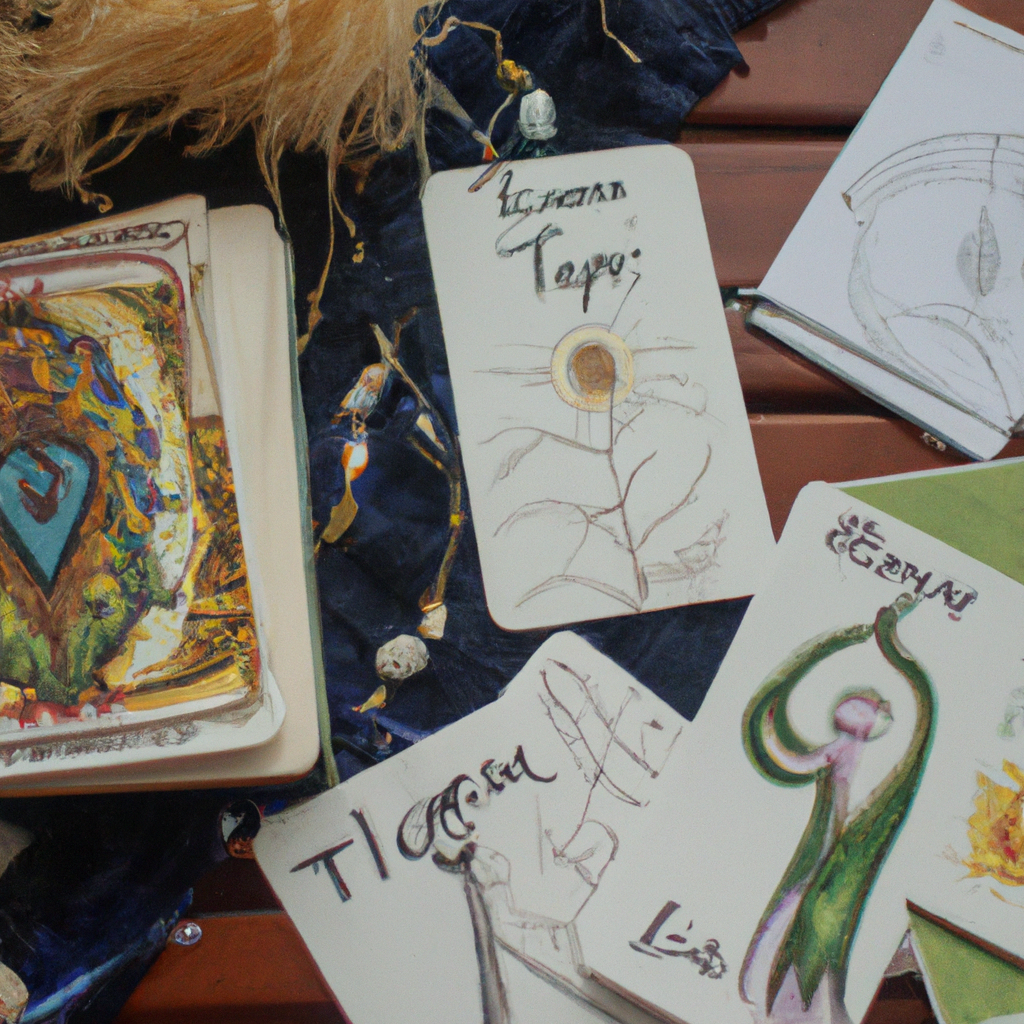
Tarot journaling is a fascinating journey, a personal exploration through the mystical world of the Arcana. It’s a practice that combines the ancient wisdom of tarot with the therapeutic art of journaling, creating a unique path for self-discovery and personal growth.
Imagine this: you’re sitting at a small, cozy table, a deck of tarot cards spread out before you. The room is quiet, save for the soft flicker of candlelight and the gentle scratch of your pen against paper. As you draw each card, you take a moment to study its intricate artwork, to ponder its symbolism and meaning. Then, you jot down your thoughts, your feelings, your insights. This is the art of tarot journaling.
Tarot journaling is more than just recording the cards you draw and their traditional meanings. It’s about documenting your personal interpretations, your emotional responses, and the insights you gain from each card. It’s about creating a dialogue with the tarot, a conversation that unfolds over time and reveals deeper layers of understanding.
The beauty of tarot journaling lies in its flexibility. There are no strict rules or guidelines to follow. Some people like to draw a single card each day and reflect on its meaning, while others prefer to do more complex spreads and analyze the interplay between different cards. Some people write lengthy, detailed entries, while others jot down quick thoughts or doodle sketches. The key is to find a method that resonates with you, that sparks your curiosity and fuels your desire to delve deeper into the tarot’s mysteries.
As you embark on your tarot journaling journey, you’ll likely find that the cards become a mirror, reflecting your innermost thoughts, feelings, and experiences. The Fool might remind you of a time when you took a leap of faith, while the Hermit might resonate with your need for solitude and introspection. The Tower might symbolize a period of upheaval and change, while the Star might represent your hopes and dreams for the future.
Over time, your tarot journal becomes a rich tapestry of your life’s journey, woven with threads of insight, wisdom, and personal growth. It becomes a testament to your resilience, your strength, your capacity for change and transformation. It becomes a tool for self-reflection, a way to look back on your past experiences and gain new perspectives.
But perhaps the most rewarding aspect of tarot journaling is the sense of connection it fosters. As you engage with the tarot, you’re not just connecting with a deck of cards; you’re connecting with centuries of human experience and wisdom. You’re connecting with the archetypal energies and universal themes that the tarot embodies. And most importantly, you’re connecting with yourself, with your inner world, with your unique journey through life.
So, if you’re intrigued by the tarot and love the idea of journaling, why not combine the two? Grab a deck of tarot cards, a notebook, and a pen, and embark on your own personal journey through the Arcana. You might be surprised by what you discover about yourself and the world around you. After all, as the saying goes, “The tarot will teach you how to create a soul.” And isn’t that a journey worth documenting?
Tarot journaling is a beautiful practice that combines the ancient art of tarot reading with the introspective act of journaling. It’s a journey of self-discovery, a voyage into the depths of your soul, and a way to document your spiritual growth. It’s like having a conversation with your higher self, a dialogue that unfolds through the symbolic language of the tarot.
Imagine this: you’re sitting at your desk, a deck of tarot cards spread out before you. You shuffle the deck, your mind focused on a question or a situation you’re seeking clarity on. You draw a card, and there it is – a message from the universe, a piece of wisdom, a hint about what’s to come. You jot down the card’s name, its position, and your initial thoughts and feelings about it. This is the beginning of your tarot journaling journey.
As you continue to draw cards and record your thoughts, you’ll start to notice patterns and themes. Maybe you keep drawing the same card over and over, or perhaps certain symbols keep popping up. These recurring elements are not coincidences; they’re messages from your subconscious, clues about what’s going on beneath the surface. By writing them down, you’re giving them a voice, allowing them to come to the forefront of your consciousness.
But tarot journaling is not just about recording what you see in the cards. It’s also about reflecting on what those symbols and messages mean to you. It’s about diving deep into your psyche, exploring your fears, desires, hopes, and dreams. It’s about understanding yourself on a deeper level and using that understanding to navigate your life with more wisdom and grace.
For instance, let’s say you keep drawing the Tower card, a card that often signifies upheaval and change. Instead of panicking or worrying about what this could mean, you use your tarot journal to explore your feelings about change. You might discover that you’re resistant to change because of past experiences, or maybe you’re craving change but are afraid to take the necessary steps. By reflecting on these feelings and writing them down, you’re not only gaining insight into your current situation but also working through your fears and anxieties.
And that’s the beauty of tarot journaling. It’s a tool for self-reflection, a way to tap into your intuition and gain insight into your inner world. It’s a practice that encourages you to slow down, to tune into your inner wisdom, and to listen to what your soul is trying to tell you.
Moreover, as you continue to journal, you’ll start to see your spiritual growth documented on the pages. You’ll see how your understanding of the cards and their meanings evolves over time, how your intuition becomes sharper, how your self-awareness deepens. You’ll see your journey, your growth, your evolution. And that’s a beautiful thing to witness.
So, if you’re looking for a way to enhance your spiritual growth, consider giving tarot journaling a try. It’s a practice that combines the mystical with the practical, the spiritual with the psychological. It’s a journey of self-discovery, a voyage into the depths of your soul. And who knows? You might just find that it’s the perfect tool for you.
The Art of Tarot Journaling: Documenting Your Journey is a valuable resource for those interested in exploring their spiritual journey through tarot. It provides a unique approach to self-reflection and personal growth by combining the ancient practice of tarot reading with the therapeutic process of journaling. This method allows individuals to gain deeper insights into their thoughts, emotions, and experiences, enhancing their self-awareness and personal development.
